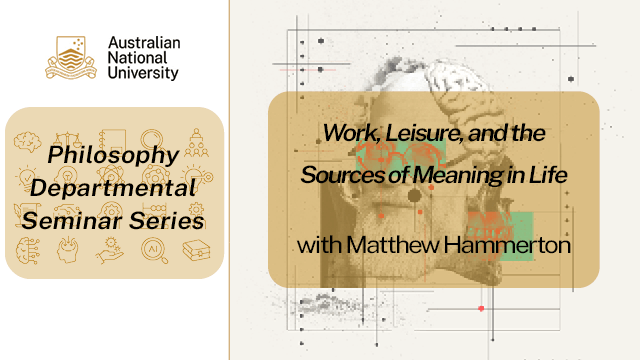Work, Leisure, and the Sources of Meaning in Life

Matthew begins with the question ‘what is work?’ Many argue that ‘work’ is a hopelessly indeterminate term that cannot be adequately defined. Against this view, he defends a novel account of what work is. Building on this, he then develops accounts of three other types of human activity that can be contrasted with work: leisure, self-enrichment, and engaging in a relationship. With four main types of human activity defined, he then gives an account of how each activity can be a source of meaning in life. Finally, he fits this into a more general view about the sources of meaning in life.
Matthew Hammerton is Associate Professor of Philosophy at Singapore Management University. His research explores different categories of value that are important for living a good life and acting ethically. He is best known for his work on agent-relative value, which examines moral theories like consequentialism and deontology.
He has also done significant work on meaning in life, examining its connection to well-being, sacrifice, achievement, and luck. More recently he has turned his attention to the philosophy of work and is currently writing a monograph on workism—the phenomenon of people making their work the primary source of meaning and identity in their lives.
This event is originally published on the School of Philosophy website.
Location
Level 1 Auditorium (1.28), RSSS Building 146 Ellery Cres. Acton 2601, ACT
Speaker
- Associate Professor Matthew Hammerton (Singapore Management University)
Contact
- Alexandre Duval